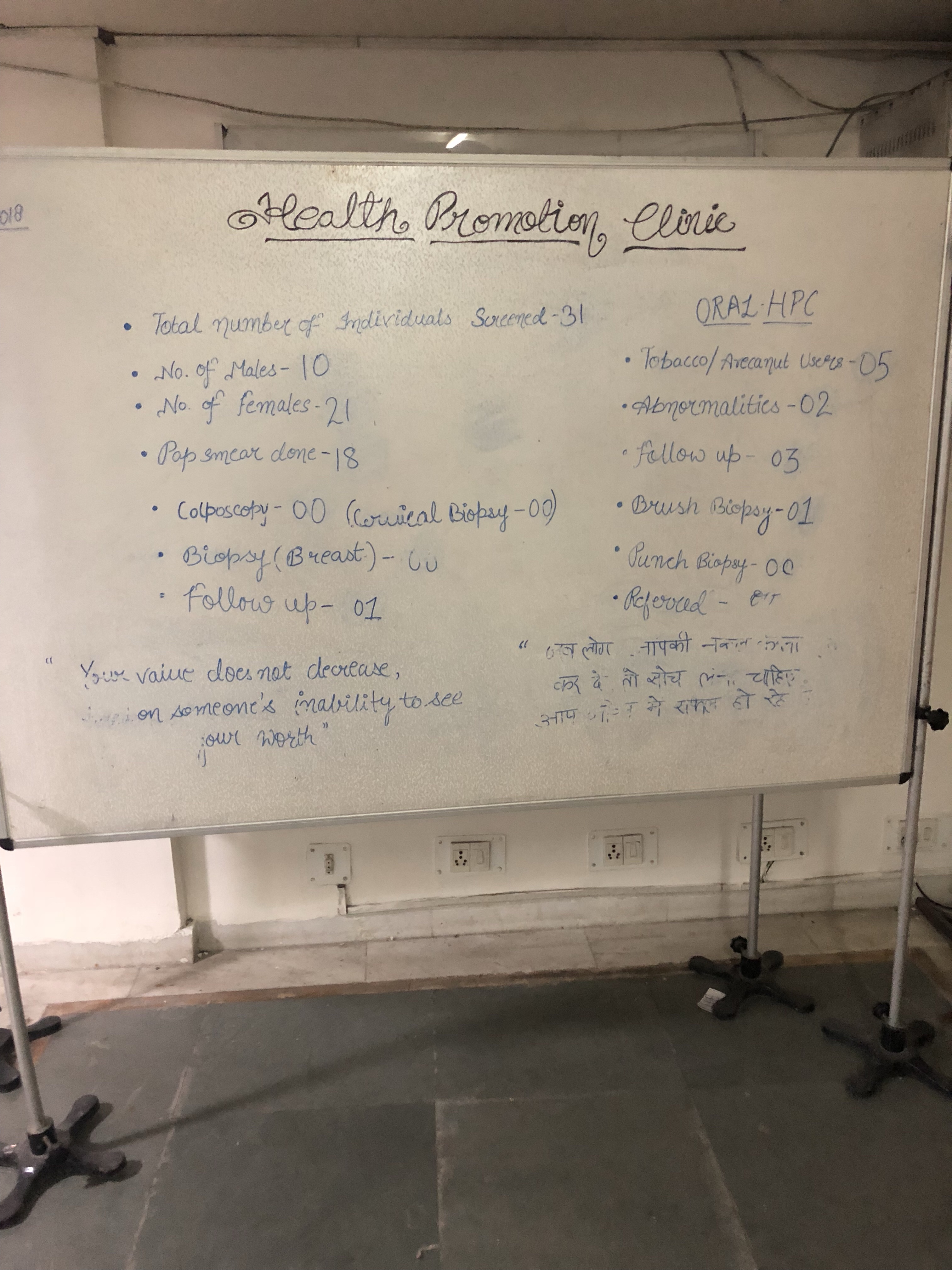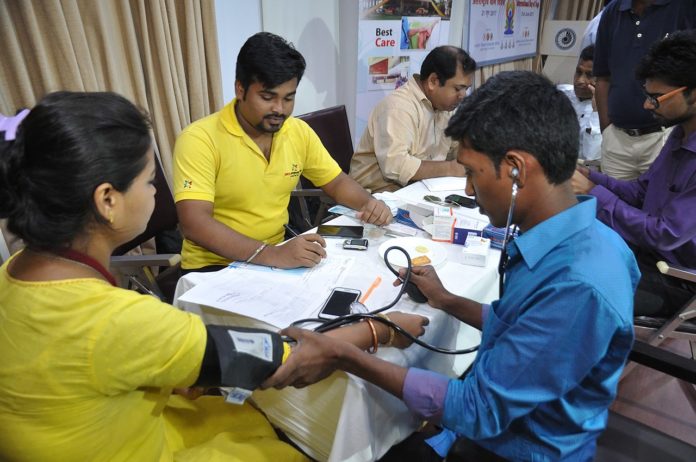Health workers from the National Institute of Cancer Prevention and Research (NICPR) in Sector 39 go out to villages to talk them into cancer screening
Taking the fear out of the “c” word, a government institute in Noida, has for the last four years, been running a novel cancer screening programme.
Health workers from the National Institute of Cancer Prevention and Research (NICPR) in Sector 39 go out to villages to talk villagers into visiting the Health Promotion Clinic. A government vehicle brings back those that agree. The clinic has been running since 2014. Of the total 7413 individuals screened till date, 2% were found positive for cervical cancer, 0.05% were found to have mouth lesions, of which 0.03% were malignant. The others could go on to become cancers. Of the total number of 899 breast examinations done 0.06% were found to be malignant.

The clinic, officials say, is a proof of concept for the national programme to combat non-communicable diseases. In a tweet on Monday, NICPR director Dr Ravi Mehrotra said: “Hope to adapt these in the national program. Kudos to Team NICPR & collaborators.” The burden of cancer in India is estimated at over 1·5 million new cases, for both sexes, and is predicted to nearly double in the next 20 years with age-adjusted mortality rates of 64·5 per 100 000 people.
In 2010 the National programme for Prevention and Control of Cancer, Diabetes, Cardiovascular Diseases and Stroke (NPCDCS) was announced in 100 districts where among other things, screening was to be done for some forms of cancer
It was way back in 1975-76 that India’s National Cancer Control Programme was initiated. In 2010 that programme was integrated with the National programme for Prevention and Control of Cancer, Diabetes, Cardiovascular Diseases and Stroke (NPCDCS) in 100 districts where among other things, screening was to be done for some forms of cancer. Several years on, in 2017, the scheme was repackaged and relaunched. Health ministry sources say the preliminary groundwork of manpower training etc is now underway.
The idea of the Noida clinic is to see if innovative models work better – for one the ASHA worker here is paid Rs 20 per patient. The counselling is done by bilingual staff members whose first instruction is to not raise voices. A government vehicle is sent every day into the village to bring patients in. The counselling aids are innovative too – for example a cut pomegranate is used to talk about cervical cancer and why the state of the cervix is not immediately visible from the outside.
Cancers of the breast, cervix or mouth etc are detectable through screening and a concerted screening programme can do wonders in the incidence rates of these diseases. Take the United States for example.
In the 1960s and 1970s it had an estimated 200,000 new cases of cervical cancer every year – roughly the same as India’s current numbers. That was also the time when PAP smear had emerged as an effective tool for screening. The US government took stringent measures, making it mandatory for all women of reproductive age who came to the hospital regardless of the nature of their diagnosis to undergo screening before being discharged. If a patient was not screened, the hospital to which she had been admitted was liable to pay a fine. Today the number of new cases annually in the US is down to 10,000.


